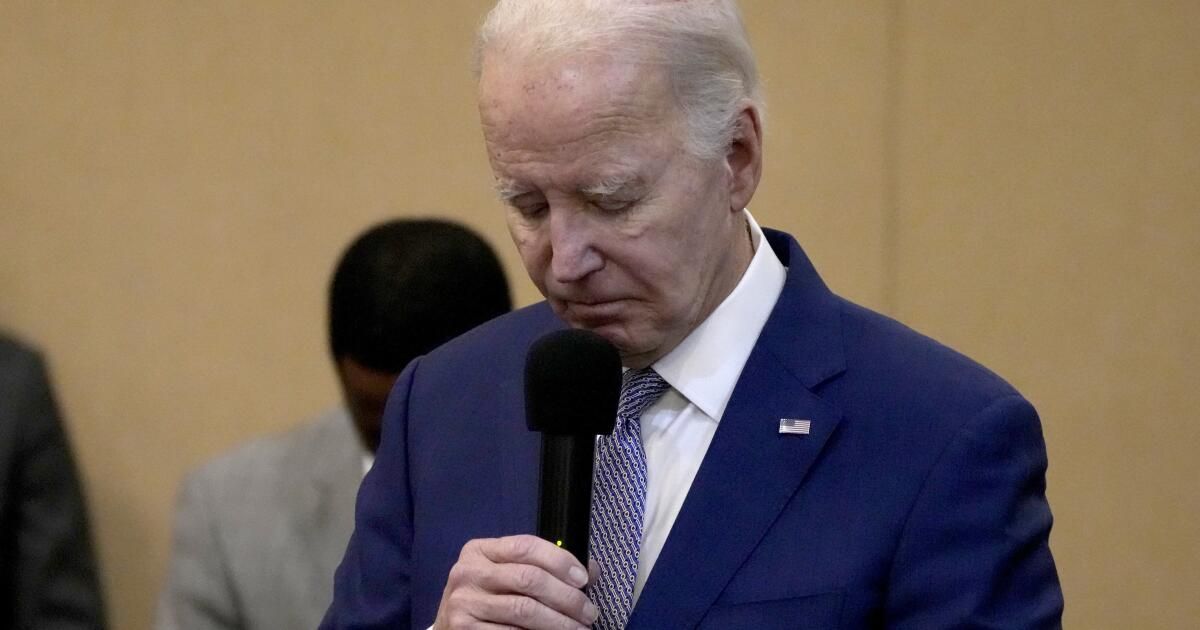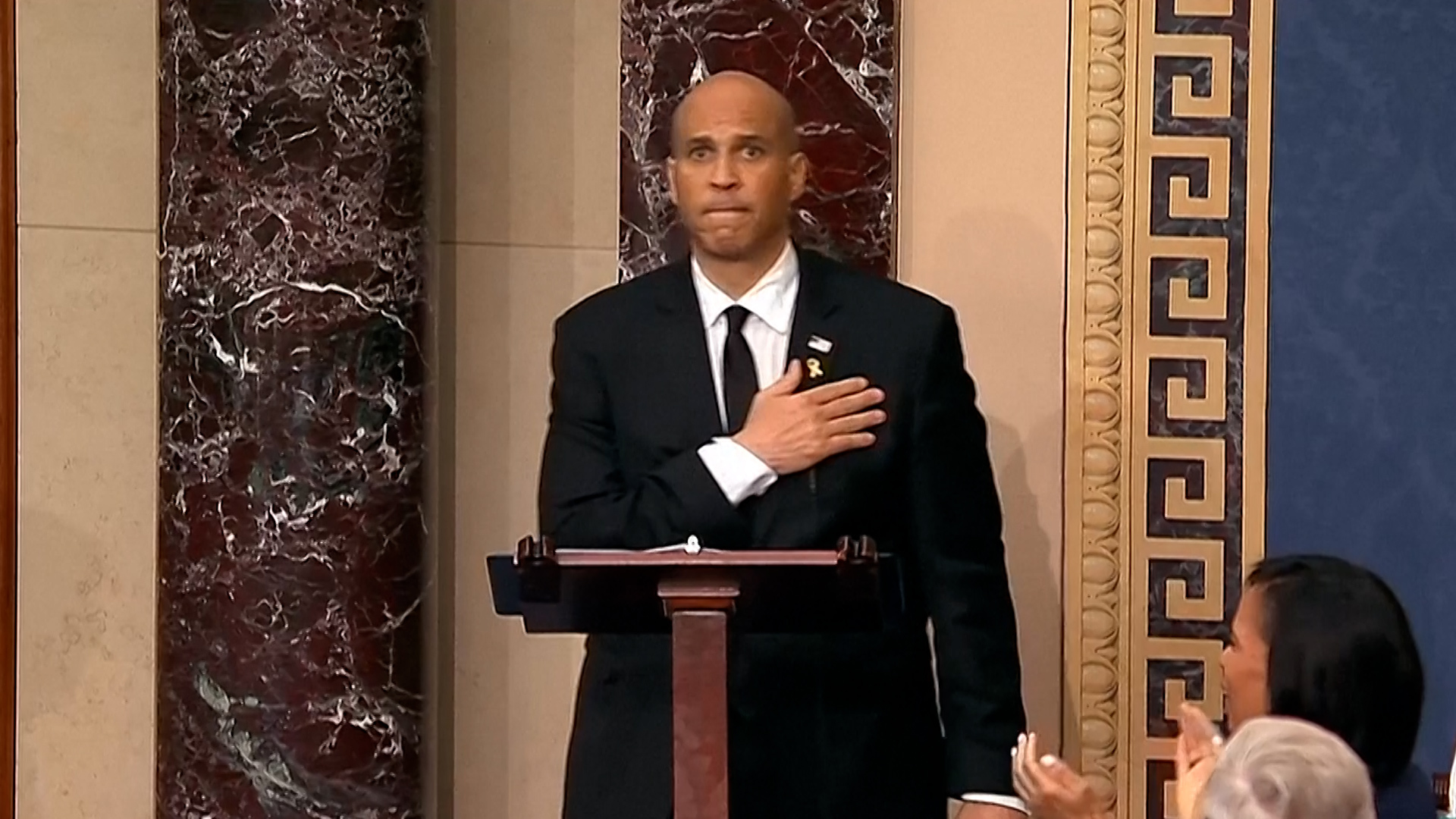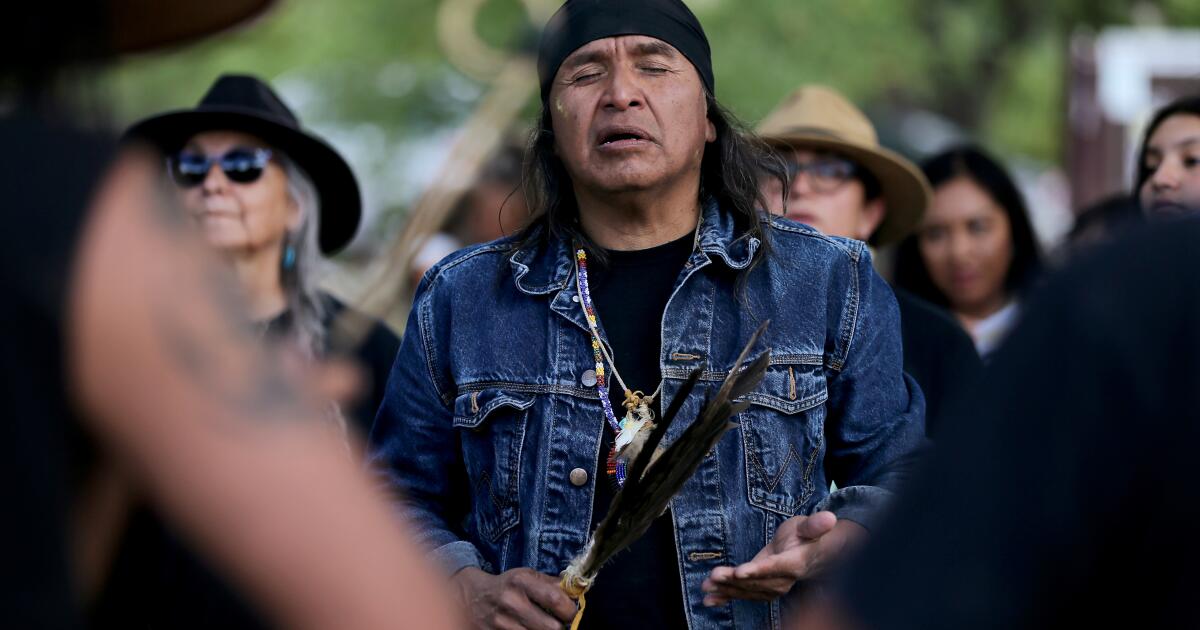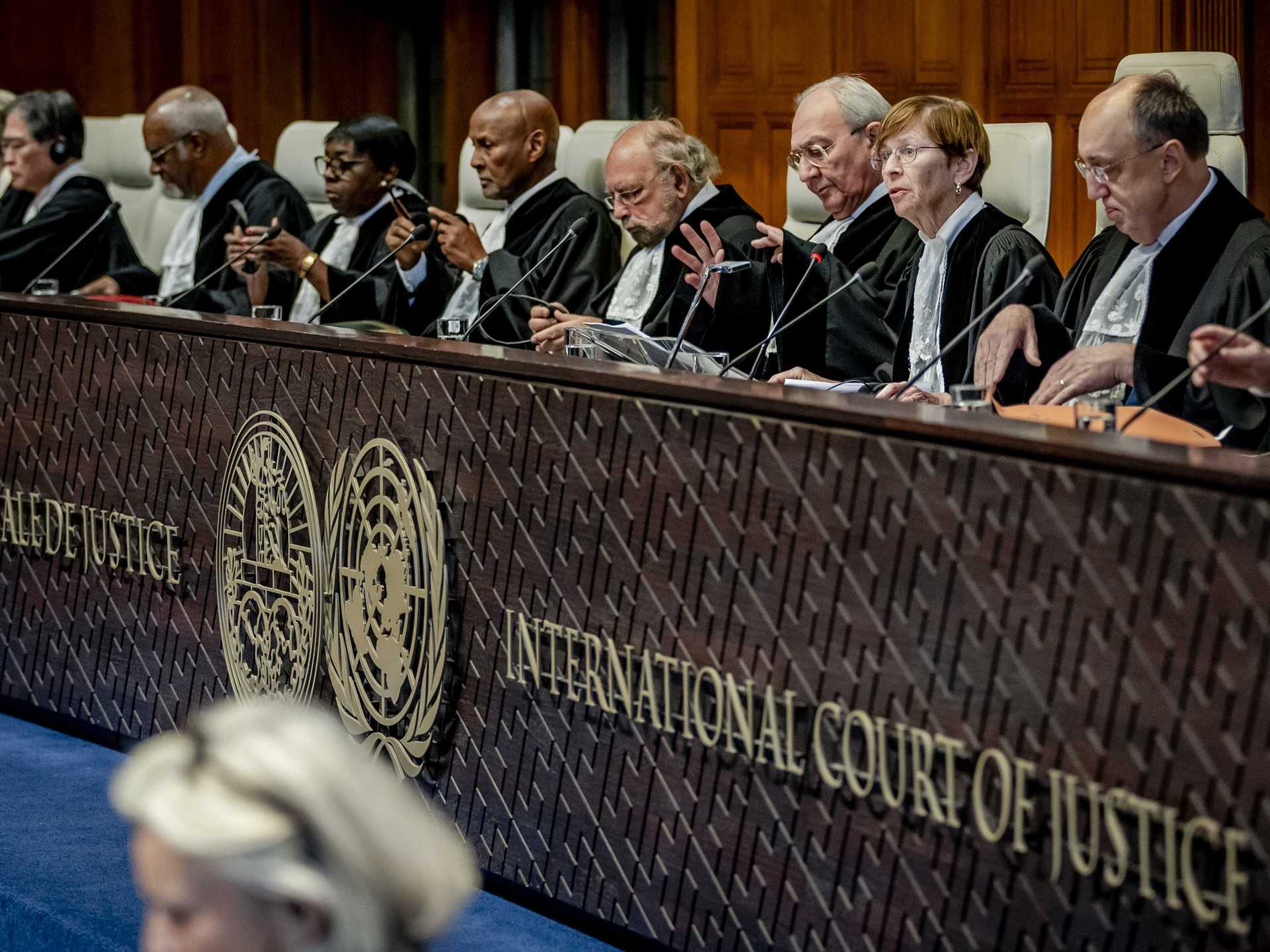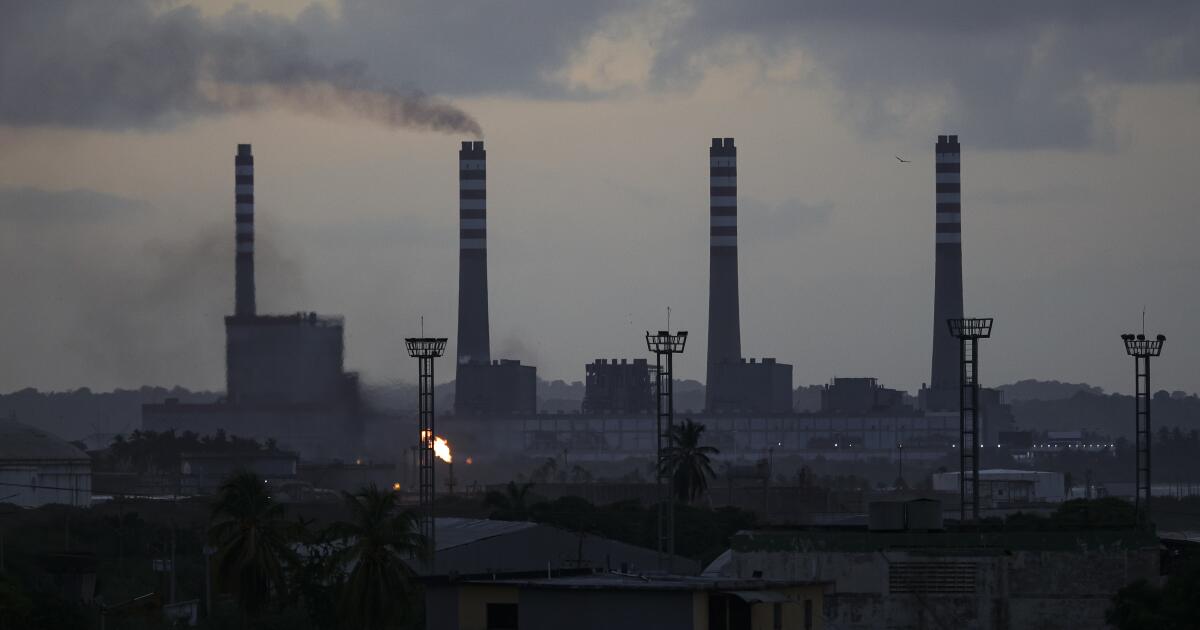A drone strike early Sunday that killed three U.S. service members and injured dozens more threatens to upend the Biden administration's delicate effort to prevent the war between Israel and Hamas from spiraling into a broader regional conflict. or a direct confrontation with Iran.
In the more than three months since Hamas killed about 1,200 Israelis in a surprise attack and Israel responded with a harsh invasion of the Gaza Strip that left more than 26,000 dead, President Biden has sought to prevent hostilities from spreading. in the restless region.
Before Sunday, U.S. bases in Syria and Iraq had been subject to about 160 attacks by Iranian-backed militias angered by U.S. support for Israel and Israel's attacks on Gaza. But despite the numerous injuries U.S. troops suffered in those attacks, the administration has avoided strong retaliation or counterattacks, with the notable exception of U.S. airstrikes against Houthi rebels who claimed responsibility for a series of missile attacks. maritime in the Gulf of Aden.
Sunday's deadly drone strike along the Jordan-Syria border may alter that approach, forcing Biden to find a way to respond to American casualties without provoking a regional confrontation with Iran.
Also complicating the task were reports on Monday, which first appeared in the Wall Street Journal, that US forces protecting operations in the region may have mistaken the enemy drone for a US one returning to its base around the same time. . Believing it was an American drone, they allowed it to cross unopposed to the base, the Associated Press said Monday.
A Pentagon spokeswoman declined to comment on the reports and said it was still investigating the drone attack, including the possibility of human error.
The central question now facing Biden is what role Iran played in the attack, which marked the first time US troops were killed by hostile fire in the region since the start of the war.
The attack was claimed by the Islamic Resistance in Iraq, an umbrella label for a variety of Iranian-backed militias operating in Iraq and Syria. A statement issued Sunday night said it was part of a trio of attacks on US bases in the region and came “in response to the Zionist entity's massacres against our people in Gaza.”
Biden blamed “radical militant groups backed by Iran” and added that the government was still “gathering the facts” of what he described as a “despicable and totally unjust” attack.
“Rest assured,” he concluded, “we will hold all those responsible accountable whenever and however we choose.”
Speaking to NBC News on Monday, U.S. National Security Council spokesman John F. Kirby said the attack bore the “marks” of a group or groups supported by Kataib Hezbollah, a powerful Iraqi paramilitary faction that is an important actor in the regional network of militants. backed by Iran. It includes Hamas, Palestinian Islamic Jihad, the Houthi rebels in Yemen and Hezbollah in Lebanon.
Members of Kataib Hezbollah have fought alongside the Iraqi army against the Islamic State since 2016, but have also operated in Syria in support of that country's government.
The group has long been locked in a minor dispute with US forces, whose military presence in Iraq and Syria it considers an occupation. There are about 2,500 US troops in Iraq and 900 in Syria as part of the mission against ISIS. Kataib Hezbollah has launched harassment attacks aimed at forcing Washington to withdraw its troops.
Biden's first military act as president came in 2021, after a rocket launch by Kataib Hezbollah killed a civilian contractor and injured several service members at a base in Iraq.
Kirby said the United States “is not seeking war with Iran.”
“We do not intend to escalate the conflict in the region. Obviously, these attacks keep coming. “We will continue to analyze the options,” he stated.
“What we want is a stable, secure and prosperous Middle East, and we want these attacks to stop.”
For its part, Tehran distanced itself from Sunday's attack. At a press conference on Monday, Iranian Foreign Minister Nasser Kanaani rejected Biden's statement as “baseless accusations,” saying that “resistance groups” do not take orders from Iran and that Tehran “has no involvement.” in their decisions.
Kanaani suggested that the attack was orchestrated by forces seeking to provoke the United States and drag it into the conflict.
Biden is already under pressure from Republicans to respond. They say his “weak” Middle East policies have been interpreted as a green light to attack American targets.
Sen. Lindsey Graham (R.S.C.) said the administration's deterrence policy had “failed miserably” and that the U.S. military had to strike inside Iran to have an impact.
“Hit Iran now,” he said in a statement. “Hit them hard.”
According to analysts, such action could have dire consequences by exponentially increasing deadly violence.
A possible alternative would be an attack targeting a single Iranian leader or members of proxy groups.
“Iran doesn't want an all-out war; they can't win it,” said Rajan Menon, director of the strategy program at Defense Priorities, a think tank that advocates a more moderate foreign policy. “But that doesn't mean they don't have a lot of buttons to push” that can disrupt the global economy, cause many deaths and destabilize the region.”
US officials are eager to provoke more violence.
“I would say we have not seen a situation as dangerous as the one we face now across the region since at least 1973,” Secretary of State Antony J. Blinken said Monday, after a day of meetings with senior Arab leaders and the Secretary General of NATO.
Details about Sunday's attack remain scarce, but it appears to have been the work of a single drone, which struck early in the morning the barracks at Tower 22, a base located within a series of border observation points run by The Jordanian army at the country's border. extreme northeast near Iraq and Syria.
Satellite images of the outpost and its surroundings released by Planet Labs on Sunday show a cluster of bunkers, helipads, and dormitories and mess halls for troops against an arid desert backdrop. Some 8,000 displaced Syrians reside in the nearby Rukban camp.
A source who until recently worked at a high-level headquarters overseeing operations at Tower 22 said there had been numerous drone flyovers of the outpost and nearby Tanf Garrison, even before October. The base has defenses against drones.
The attack comes days after Washington held its first talks with Baghdad about the future of US and coalition troops in that country.
Iraqi officials have pushed for years to reduce the U.S. presence, calls that intensified after a U.S. strike in January killed the top commander of a Shiite faction in Baghdad.
Iraqi Prime Minister Mohammed Shia al-Sudani is reportedly considering ending the coalition's presence in Iraq entirely. An American retaliation that includes strikes on Iraqi soil will likely strengthen anti-American voices in Iraq.
The consequences also affect Jordan. The government there, a staunch U.S. ally, is facing a wave of anti-American fervor over Washington's refusal to call for a ceasefire in Gaza. Jordanian officials have long downplayed the American military presence in the country; Until Sunday, the existence of Tower 22 and the presence of American troops there was a secret.
One option, advocated by many Middle Eastern leaders and echoed on Monday by Qatari Prime Minister Mohammed bin Abdulrahman bin Jassim Al Thani, is to achieve a ceasefire in Gaza.
“We have warned from day one that this war has the potential to expand and spread to the region… and we are seeing this building up over the last three and a half months,” he said.
Whatever choice the Biden administration makes, said Thanassis Cambanis, a senior fellow at the Century Foundation think tank, the United States is already embroiled in a regional war.
“We are in a limited war, which is certainly better than an all-out war, but we are one or two miscalculations away from spiraling completely out of control,” he said.
“Was it brilliant calibration on the part of the resistance factions that no one was killed before, or was it luck?” he said.
“It was luck. And now, as was inevitable, luck has changed.”
Wilkinson reported from Washington.

